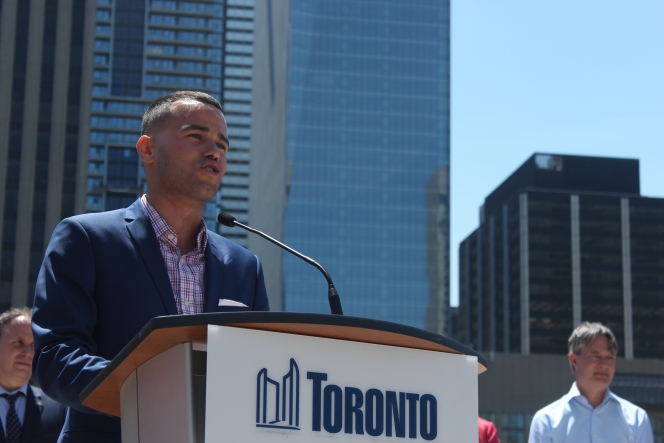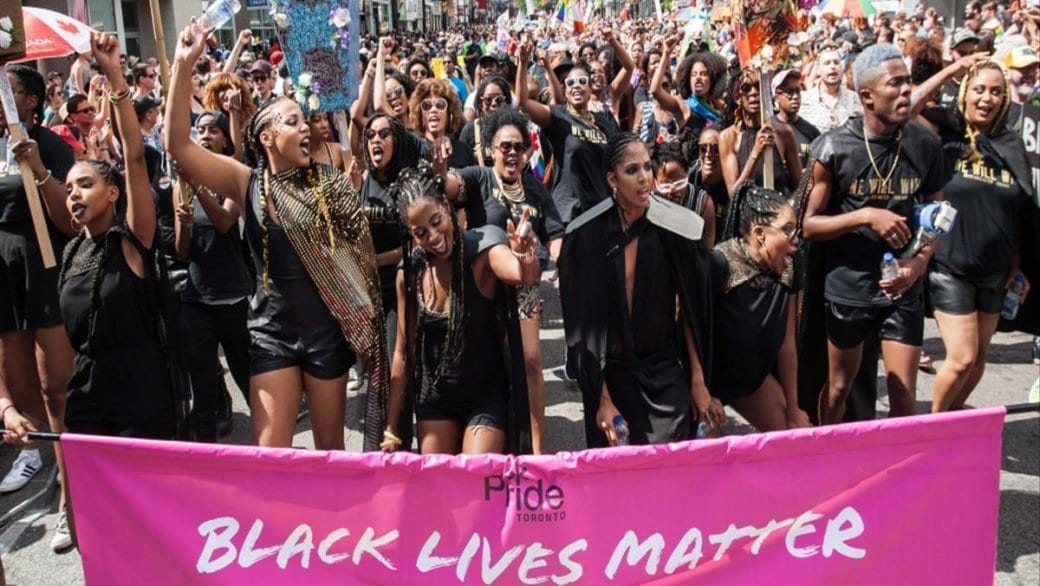Pride Toronto is very sorry.
In a lengthy statement posted to their website, the Pride Toronto board of directors apologized for a litany of wrongs, including a history of anti-black racism, the handling of the Black Lives Matter Toronto protest at Pride 2016, racism experienced by community members both before and as a result of the protest and for any unfair attacks directed at law enforcement.
“We can’t move forward until we acknowledge the mistakes that led us here,” Aaron GlynWilliams, co-chair of Pride Toronto’s board, told Daily Xtra.
The statement was a response to the thousands of pieces of feedback that Pride Toronto gathered in the wake of the 2016 parade — including emails, surveys and comments from community members after the two-day town hall meeting.
“While we selected BLMTO with the best intentions and to purposefully create discussion, we were not properly prepared for the racism this would ignite,” read the statement.
The organization says that it is committed to following through on all of the demands made by BLMTO and will hold a public town hall this winter to demonstrate the progress it has made.
Highlights from Pride Toronto’s first town hall on Aug 30, 2016
Rob Easton/xtraonline/YouTube
But on the controversial question of police involvement in the parade, Pride Toronto will leave the decision to a dispute resolution process, in which a panel of arbitrators decide whether or not a group can participate in Pride.
The process has only been used twice. In 2012, the panel allowed Queers Against Israeli Apartheid to march. And in 2015, Canadian Association for Equality, a men’s rights group, was permanently barred from the parade.
GlynWilliams says that the board will ask the panel to not only consider whether or not police should be allowed to march in the parade, but also to consider if there should be any guidelines regarding law enforcement participation in the future.

He says that the question of police participation in the Pride parade is complicated.
“There are LGBT service members in these organizations for whom marching in the parade in their uniform is a self-affirming act,” GlynWilliams says.
But at the same time, GlynWilliams says that numerous marginalized communities are disproportionately subject to violence and discrimination at the hands of those same police forces.
“If there’s any day they should feel safe and at home, it should be the Pride parade, and they’re telling us that they don’t.”
Pride Toronto also promised to review the 133 recommendations made by a community advisory panel in 2012, which dealt with all aspects of the organization.
Since the parade, Pride Toronto has lost two employees in key positions. In August, executive director Mathieu Chantelois resigned. Pride Toronto has confirmed that staff members had sent a letter to the board outlining a number of serious allegations against Chantelois. He has publicly denied any wrongdoing.
Last week, Pride Toronto’s communication manager Victoria Schwarzl left the organization for a job at new company, leaving them with another major role to fill.
GlynWilliams says that the board is still in the early phases of searching for a new executive director.
Pride Toronto will also be electing four new board members at its upcoming annual general meeting.

 Why you can trust Xtra
Why you can trust Xtra


